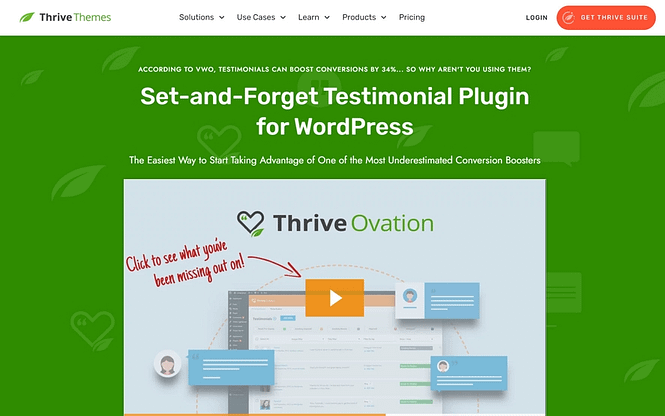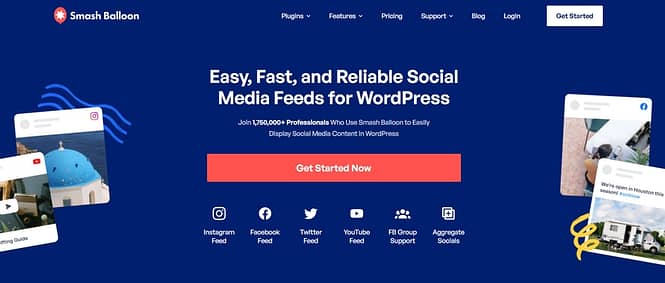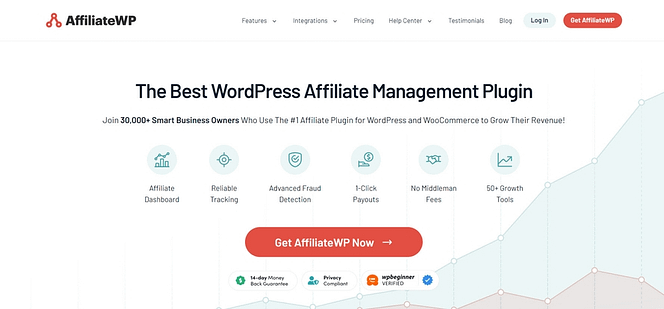Are you looking for ways to give your e-commerce store a boost?
One of the very best things you can do to ensure the success of your e-commerce website is to include social proof.
In this article, we'll explore what social proof is, the results you can achieve by implementing social proof strategies, and the tools you can use to showcase social proof. So, buckle up and get ready to unlock the potential of social proof in e-commerce.
More...
What is Social Proof?
First things first, let's get clarity on an important question: What is social proof?
Playing on the psychological phenomenon where people conform to the actions of others, a simple definition of social proof is any evidence that others have used a product and like it.
This evidence can take many forms, such as written testimonials, video reviews, influencer endorsements, a large social media following, or even a simple word of mouth recommendation from a friend.
From the perspective of a business owner trying to sell a product, social proof is a way of communicating to an audience that the product delivers on its promises and is well-liked by those who have used it, therefore you should buy it, too.
The Importance of Social Proof in E-Commerce
Without a physical store where customers can touch and feel products, online shoppers rely heavily on other customers' experiences and opinions. This is where social proof comes into play. It provides potential customers with a number of reassurances necessary to make a purchase:
- Social proof helps establish a business’s credibility as an authority, making potential customers more likely to engage, make a purchase, and recommend products to others.
- Social proof showcases the results that customers can expect from a product, serving as a powerful motivator for those who want to achieve the same results.
- Perhaps most importantly, social proof shows that a brand or business is trustworthy. Trust is the foundation of any successful e-commerce transaction, as customers need to trust that they’ll receive what they paid for, and trust that the item works as advertised.
By providing social proof, you can build up the authority and trust necessary for website visitors to become buyers.
Types of Social Proof
Social proof can come in many different forms. Let’s explore the most effective types of social proof and how to showcase them on your website using beginner-friendly tools.
Customer Testimonials and Reviews
One of the most straightforward ways to showcase social proof is by featuring customer testimonials and reviews on your website. These can be displayed on product pages, your homepage, or a dedicated testimonial page.
Testimonials and reviews can be immensely helpful to potential customers because they provide real-life experiences from actual customers, offering insights into the quality and usefulness of your products or services.
How to Use Testimonials and Reviews to Boost E-Commerce Sales
For pages like product detail pages and long form sales pages, social proof in the form of testimonials and reviews can go a long way toward driving conversions.
Exactly how effective are they?
As it happens, we conducted our own test to find out. We tested two versions of a sales page – one without testimonials, and one with two testimonials placed right beneath the call-to-action button.

We sent 50% of our traffic to each variant, ran the test for 6 weeks and discovered… drum roll please…
Adding testimonials boosted conversions by a whopping 25%!
The proof is in the pudding, folks.
When placing testimonials and reviews on your e-commerce website, consider the most strategic locations given the layout of your site. These can be places like:
- Your sales page near the call-to-action button
- Your main Products page
- Your Homepage
- Your About page
- The footer for your website
- A dedicated testimonials page
Want to conduct an A/B test of your own? Be sure to build your pages using Thrive Architect, and then you can use Thrive Optimize to measure how many more conversions you’re getting with the addition of social proof.
Check out pricing for Thrive Architect
The Best Testimonial Plugin for WordPress
Managing testimonials and reviews can be quite a chore, especially as more and more customers get to know your products and express their compliments. To manage testimonials and reviews, we recommend using a tool like Thrive Ovation.
This tool allows you to capture, display, and manage testimonials with ease. Here's how easy it is to use: select one of our handy templates to place a testimonial capture form on your website.

Once you’ve started receiving testimonials and reviews, rest easy knowing you can manage them swiftly from Thrive Ovation library.

When it’s time to display testimonials, Thrive Ovation makes quick work of that, too. Simply choose one of the included templates...

... and select which testimonials to display. You can select testimonials manually, or display a dynamic list of tagged testimonials.

Easy, right? If you’re looking for the best testimonial plugin for WordPress, Thrive Ovation would be our pick.
Check out pricing for Thrive Ovation
Testimonials and Reviews on External Sites
Testimonials and reviews don't always happen on your own website. Depending on your business type, customers might leave reviews on platforms like Google, Yelp, Tripadvisor, or Facebook.
As your business accumulates glowing reviews on external sites, you can leverage another aspect of social proof by displaying those external reviews on your e-commerce website.
To do that, we recommend SmashBalloon. This easy-to-use WordPress plugin is a breeze to set up, fully customizable, and ensures your reviews look exactly how you want them to.
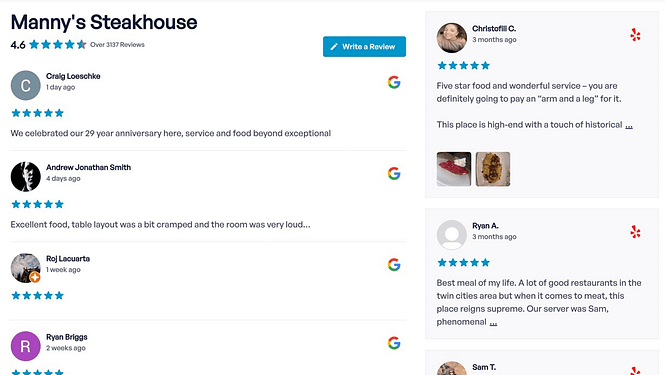
Check out pricing for SmashBalloon
Dealing Negative Feedback
At this point, you might be wondering, “What about negative reviews and comments? What should I do about those?”
Negative feedback might not seem like the best form of social proof – and certainly no one enjoys receiving it – but negative comments can be a great way to showcase your customer service. Responding promptly and professionally can show potential customers that you value customer satisfaction and are committed to resolving issues. This can turn a negative situation into a positive one, further enhancing your business's credibility.
So, instead of deleting negative comments, consider responding to them tactfully. This approach demonstrates your excellent customer service and commitment to resolving any issues that arise.
Influencer Sponsorships and Affiliate Marketing
As you build your e-commerce business, you might start looking toward influencer sponsorships and starting an affiliate marketing program. These marketing strategies leverage the trust and authority that influencers have built with their audience to promote products and services. In today’s era of intense social media engagement, used as a form of social proof, these strategies are extremely powerful.
Just how powerful are we talking?
- Dunkin Donuts saw a 57% increase in daily app downloads and a 45% increase in cold brew sales after their collaboration with Charli D’Amelio.
- Gymshark grew to a valuation of $1.4 billion after paying 80 influencers to promote and sell their sportswear.
- Chipotle became the most followed food brand on Tiktok after a massive marketing campaign involving branded hashtag challenge (#ChiplotleLidFlip), and partnerships with David Dobrik and Loren Gray.
If these brands can benefit from influencer endorsements, so can yours. Let’s take a quick look at how these strategies work.
Influencer Sponsorships and Social Proof
Influencer sponsorships involve a company paying an influencer upfront to promote their product or service. The influencer must disclose that their content is sponsored to maintain transparency with their audience. This is usually done by including a statement like "sponsored post" or "#ad" in their content.
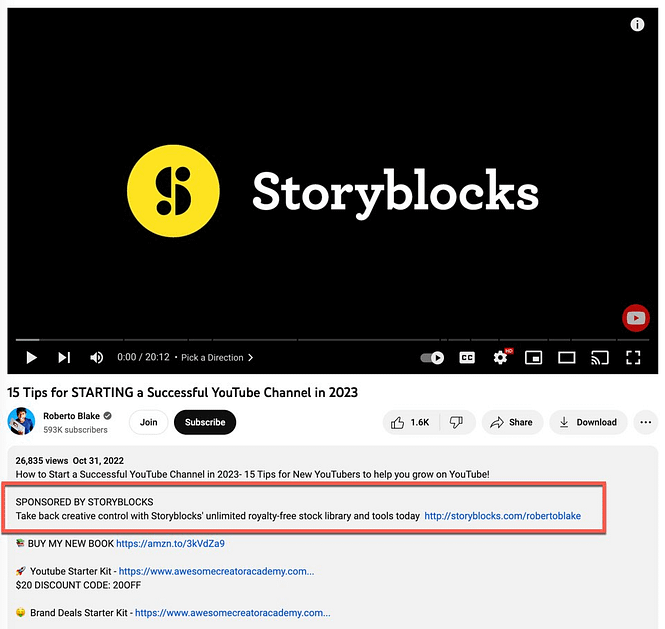
Despite the paid nature of these promotions, sponsorships can still be effective as social proof due to the trust and authority influencers have with their audience.
Affiliate Marketing and Social Proof
Affiliate marketing is another way influencers can promote products or services. In this model, influencers get a unique affiliate link or code for a product or service. They then earn a commission based on sales made through their link or code, such that an influencer's earnings are tied to the amount of sales made via their affiliate link. Like sponsorships, influencers must disclose their affiliate status to maintain transparency.

Affiliate marketing can provide strong social proof, as influencers are unlikely to affiliate themselves with products or services they don't believe in.
The Best Affiliate Marketing Tool
Running an affiliate program can be a lot of work, but a tool like Affiliate WP can make the process much easier. This WordPress plugin allows you to set up and manage an affiliate program for your business. It offers reliable tracking for affiliate links, fraud detection, and 1-click payouts, making it easy to manage and pay your affiliates.
Check out pricing for Affiliate WP
Influencer endorsements and affiliate marketing can be powerful tools for boosting your e-commerce sales. By leveraging the influence of content creators, you can reach a wider audience and provide compelling social proof for your products. So, if you're looking to increase your sales, consider reaching out to influencers and exploring these strategies.
Social Media as Social Proof
As you browse social media, you may not realize it, but you’re encountering subtle forms of social proof countless times a day. Let’s explore the role social media plays in providing social proof for your brand.
Does Having More Followers = More Social Proof?
Generally speaking, yes. A large social following suggests that your brand is well-liked and trusted by many people. It can make potential customers more comfortable with choosing your products or services over those of a less-followed competitor.
While a huge following isn't a prerequisite for selling products, an established social media presence can help build trust, especially among audiences who haven't heard of your product or company before. If people are on the fence about buying, seeing that others support your brand could influence their decision.
However, it's important to note that the quality of followers also matters. Engaged and genuine followers contribute more to social proof than followers who don't interact with your brand.
How to Feature Social Proof on Social Media
One of the best ways to feature social proof on social media is by sharing user-generated content (UGC). This kind of content can be a customer's post featuring your product, a positive review, or a compliment about your brand. You can feature this UGC in your posts, reels, or stories.
For instance, if a customer posts a photo of your product and tags your brand, you can repost this on your own account. This not only provides social proof but also encourages other customers to share their own experiences with your brand.

Integrating Social Proof on Social Media Platforms with Your E-Commerce Website
Once you’ve started featuring UGC on your social media platforms, you can optimize that content further by showcasing it as social proof on your e-commerce website.
A tool like SmashBalloon allows you to showcase your Instagram, Facebook, YouTube, and Twitter feeds, as well as display reviews from Yelp and Google.

Word of Mouth Marketing
Word of mouth marketing is another powerful form of social proof. Happy customers are often eager to share their positive experiences with others. They can become your best salespeople, recommending your products or services to their friends, family, and social media followers.
While it can be challenging to leverage word of mouth marketing as it often happens offline, there are strategies you can use:
1. Implement a referral program. Often overlooked as a marketing strategy, referral programs can be extremely powerful. In fact, when Airbnb launched their Referral 2.0 program, it drove a staggering 900% year-on-year growth for first time bookings.
2. Offer discount coupons for friends. For physical products, you can encourage word of mouth marketing by providing a pair of discount coupons with the product shipment – one for the customer, and one for a friend.

It’s worth noting that to encourage word of mouth marketing, you must provide an exceptional overall experience. This includes everything from the user experience on your website, the checkout process, customer support, to the return policy. When customers are satisfied with their entire experience, they are much more likely to recommend your brand to others.
Ready to Incorporate Social Proof with Your E-Commerce Website?
We've explored the various forms of social proof and how they can significantly boost your e-commerce business. From customer testimonials and reviews to influencer endorsements, affiliate marketing, and a solid social media presence, social proof can be a game-changer for your brand.
To get started today, we recommend using a tool like Thrive Ovation to capture and display testimonials and reviews on your e-commerce website. Take a look at these free resources to start showcasing social proof and (hopefully!) nab more e-commerce conversions:
- How to Collect and Display Testimonials (Simple Guide)
- 5 Effortless Ways to Add Testimonials to Your WordPress Website and Sales Pages
- How to Create a WooCommerce Store from Scratch with Thrive Theme Builder
Now there’s just one thing left to do, buy Thrive Ovation today!



